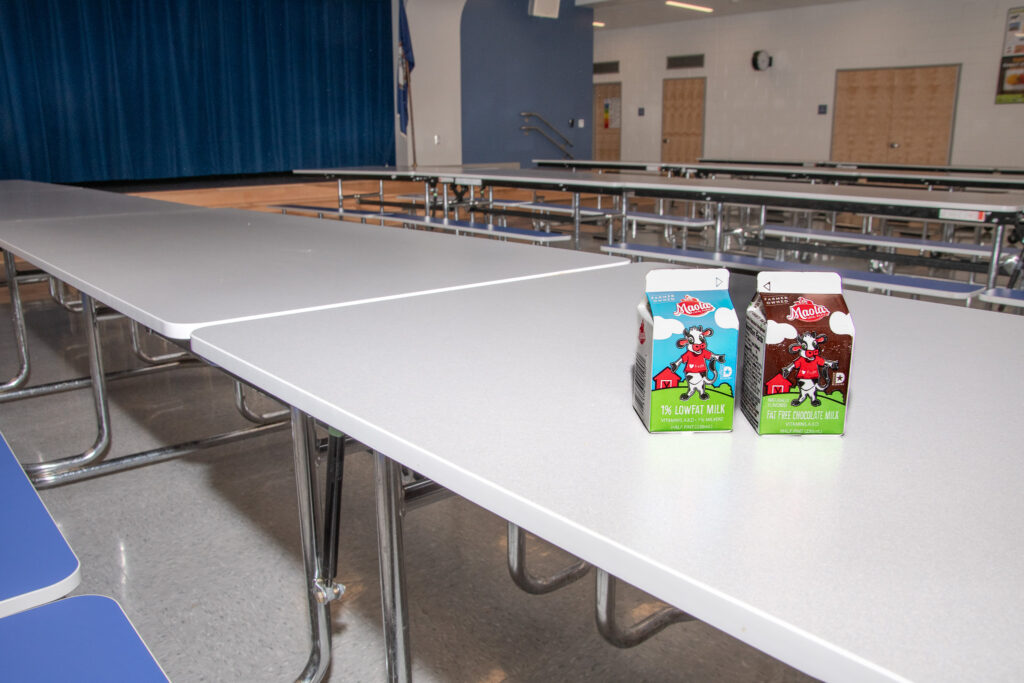
Farm to School: Delivering Sustainable Milk to Schools on World School Milk Day
She looks at students with open arms and a friendly smile, wearing her favorite shirt that says “I ❤️ Fresh.”
But make no mistake, Mooella, the mascot that adorns Maola half pints, packs a punch. Each eight ounce serving provides students with eight grams of protein and 300 milligrams of calcium. And those are just two of the 13 essential nutrients that Maola Milk offers to each of the more than three million students whose school systems contract with Maryland & Virginia Milk Producers Cooperative Association (MDVA).
And on this World School Milk Day (September 27), we recognize the importance of working with partners, school systems, and our farmer-owners to bring nutritious dairy products into schools to give kids the needed boost onto their school day.
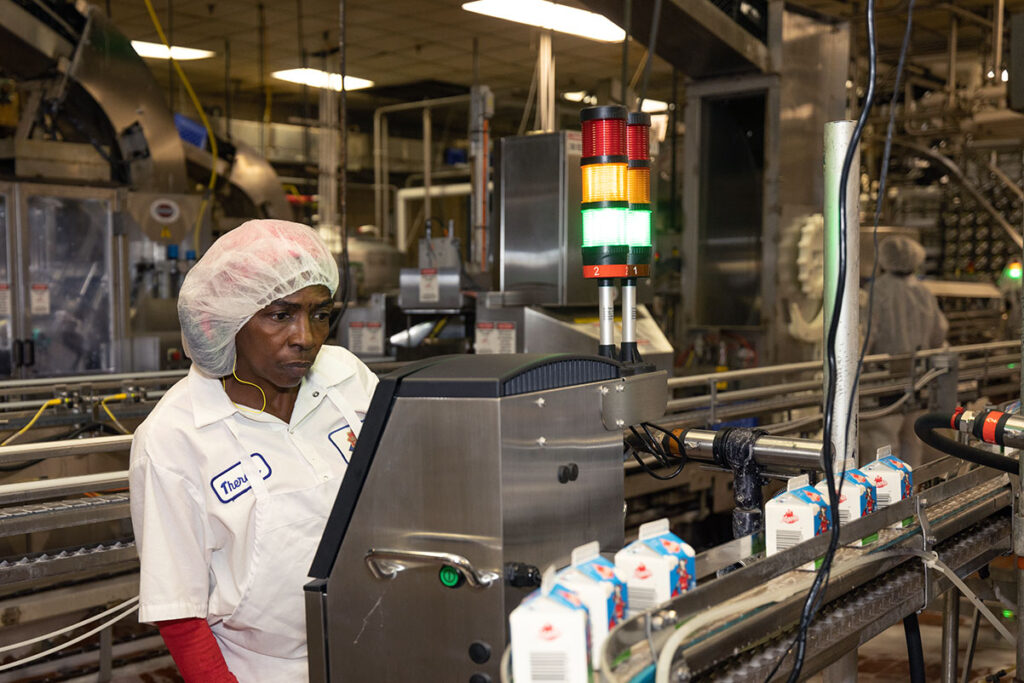
Increasing Sales For an Important Product
During the 2023-2024 school year, MDVA will be serving 32% more school systems than last year. This growth in sales can be attributed to two things: customer service and premium quality products.
One of our newest school customers is in Madison County, Virginia where Maola Milk is served to around 1,600 students in four schools, one for each grade level. It’s the first time Madison schools have made a change in their milk vendor in at least 15 years.
“I was really nervous because I’ve only ever dealt with our previous vendor,” said Patty Seale, Madison County Public Schools’ Director of Nutrition. “You never know when you make a change, but all I have to do is call and the team at MDVA fixes it — immediately.”
“Our school business is really successful thanks to the work of our teams on the ground,” said Susan Gricks, MDVA’s Regional Sales Manager. “We work to make sure that our customers are fully taken care of and will make sure that we go the distance and beyond to serve their needs.”
Bringing that sort of value to our customers aligns with long-term goals for MDVA, which ultimately relies on bringing our members’ milk from our farms to market in a consistent, sustainable and secure way. Servicing school systems is a perfect connection between a need that school systems have and a product our farmers love bringing to their communities.
Milk Is Getting a New Look
Some school systems are giving milk a makeover thanks to the, The Dairy Alliance, a nonprofit funded by dairy farm families of the Southeast. The Dairy Alliance recently helped install a milk dispenser in the Madison County’s lone high school, which corresponded to the timing of the new relationship with MDVA. The dispenser serves chilled milk from a bag as opposed to the traditional cardboard half-pint.
“The Dairy Alliance supports school districts with training, resources, and potential equipment grant opportunities,” said Roseann Liberatore, RD, LDN with The Dairy Alliance. “When schools transition to milk dispensers, they create an experience where students can serve themselves, mix flavors, and enjoy an ice-cold glass of milk with each pour.”
Seale says that the special packaging was one requirement of the new school bid this year – and one that MDVA was able to meet thanks to the right equipment at our processing plant at our Newport News plant.
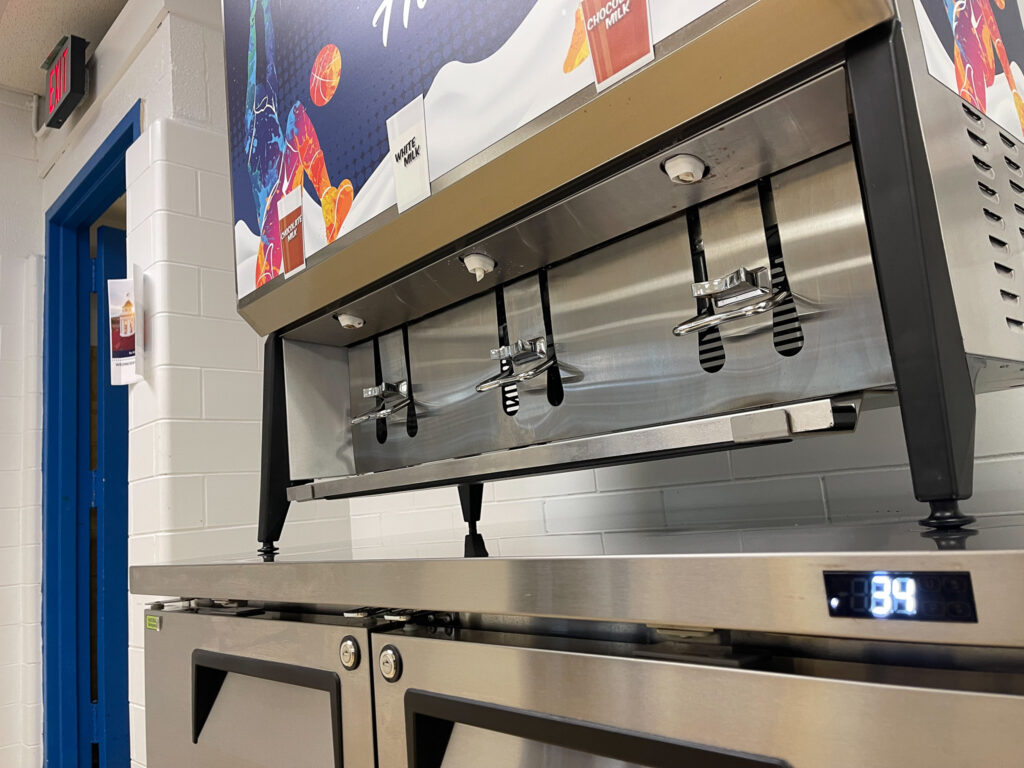
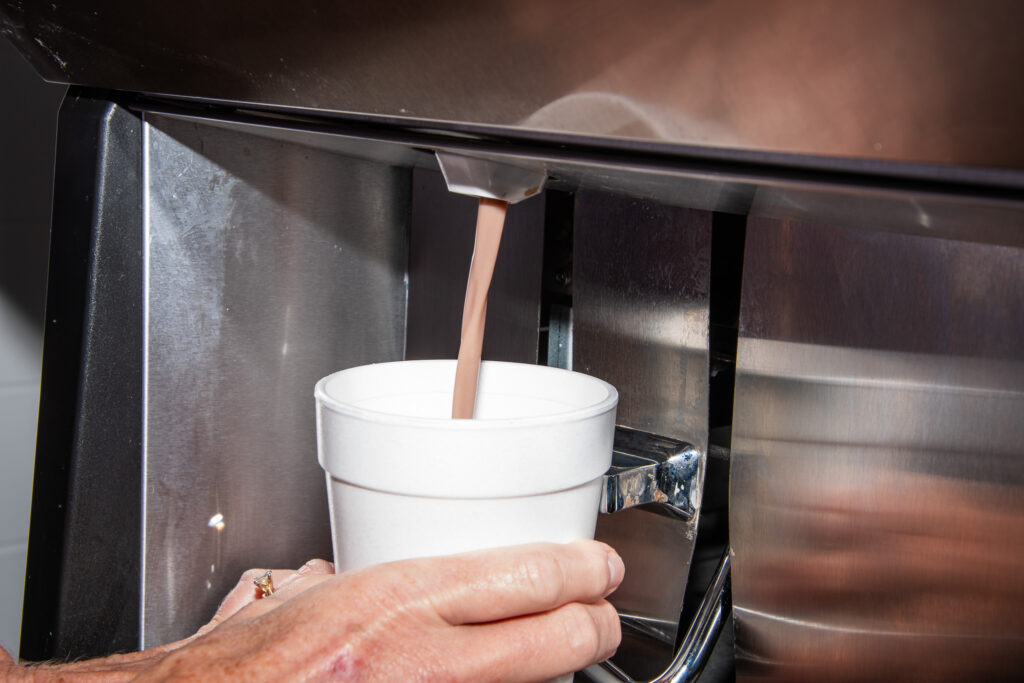
The milk dispenser has found quick success.
“They like the chocolate milk a lot,” said Karen Householder, the high school’s Nutrition Manager. “It tastes more like a chocolate milkshake.”
The dispenser wasn’t the school’s first partnership with The Dairy Alliance. The checkoff originally engaged with Seale and Householder to bring the school equipment to brew coffee. With “Moo Brew,” students can grab two ounces of coffee and ice and pair it with eight ounces milk and a flavoring like pumpkin, vanilla, or caramel.
Seale says the students love the chance to have iced coffee at school.
“The status of having iced coffee at school means a lot to our older students,” she added.
Nutrition Needs Meet Dairy Deliciousness
It’s important for school systems to help meet the need for nutrition through dairy. According to USDA research, meals in schools accounted for the richest sources of dairy for children aged 2-19. School meals provide nearly 2 cups of dairy per 1,000 calories consumed each day.
“With its unique nutritional package, enjoying milk with meals brings students closer to meeting nutrient recommendations for calcium, Vitamin D, and potassium, as well as other nutrients provided by milk,” Liberatore said.
Madison County charges just one dollar for iced coffee when students buy breakfast, which helps increase participation in its nutrition programs. That plays an important role since Madison is identified as part of the USDA’s Community Eligibility Provision (CEP) program.
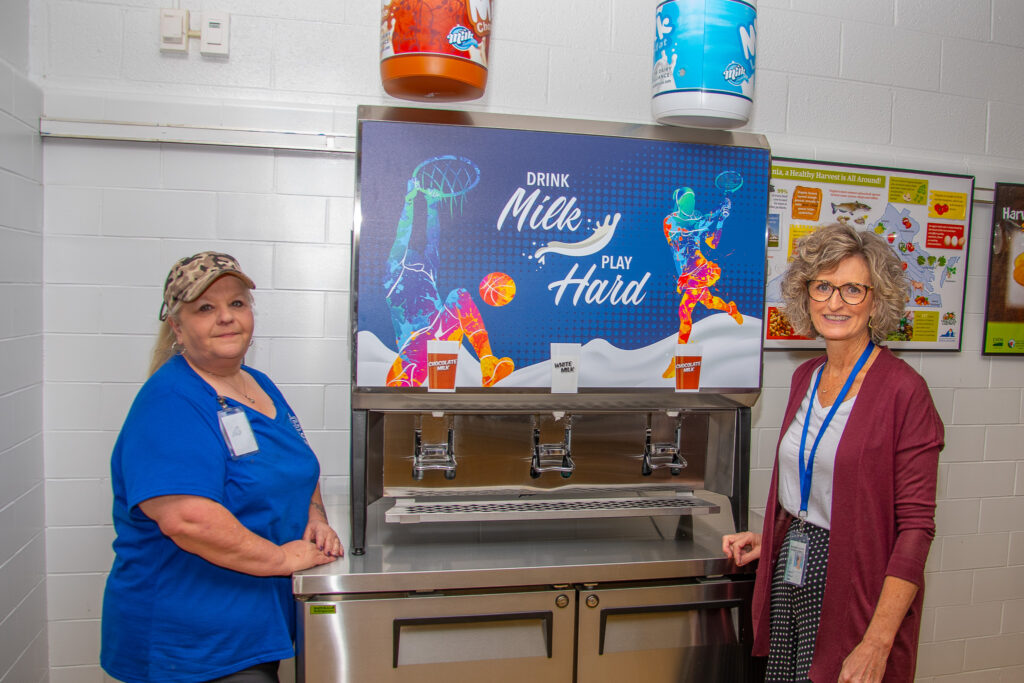
The program allows Madison County schools to offer breakfast and lunch at no charge to all students, but the school system must show that the need exists to keep the program in the county. The requirement to demonstrate that need factored into the school system’s desire to work with The Dairy Alliance and MDVA to service the dispensers. The school system is seeing increased demand at both meals.
Householder says there’s a remarkable difference in how much more students drink when offered an unlimited supply. Especially those with intense recovery needs.
“I see unlimited refills a lot with our football players,” she said. “We have a few that have their empty water bottles and fill them up.”
“Our new milk dispensers reduce waste while maintaining cost – a win for our schools,” Seale said of the refills, citing the fact that students who don’t wish to have milk don’t feel obligated to take one.
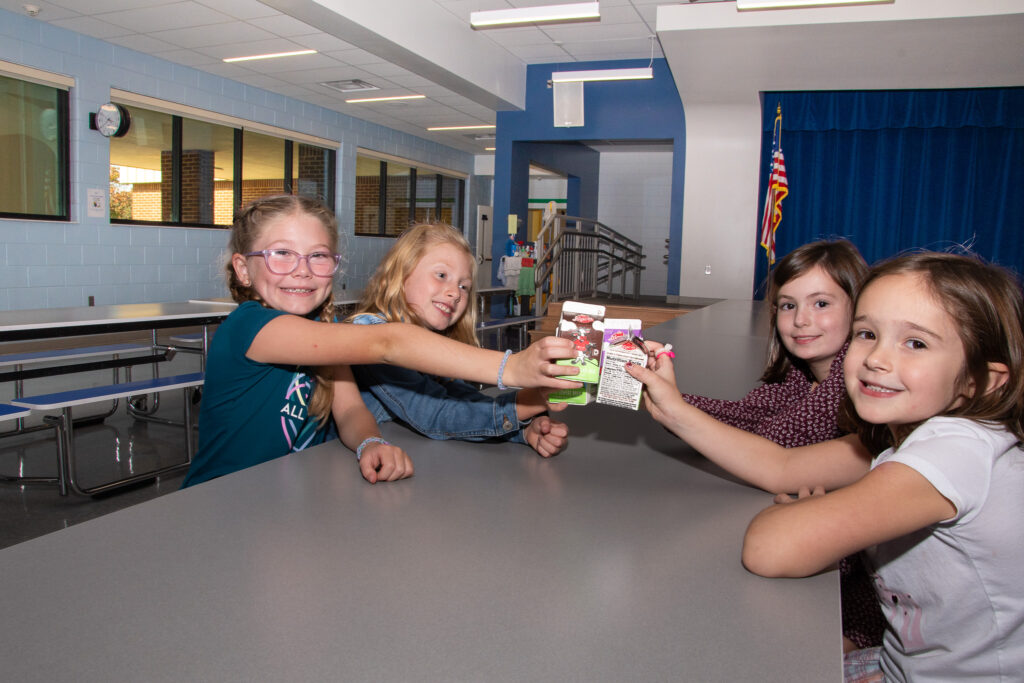
Here For Our Customers
Servicing local schools with milk for meals has always been one of the core customer groups for MDVA over the years.
As we celebrate World School Milk Day, we raise a glass to the school nutrition professionals that bring nutritious meals to students. MDVA is proud to partner with you to provide a level of service that helps keep kids hydrated and healthy.
If you’re a school nutrition director interested in working with MDVA, please reach out to us at info@mdvamilk.com.

